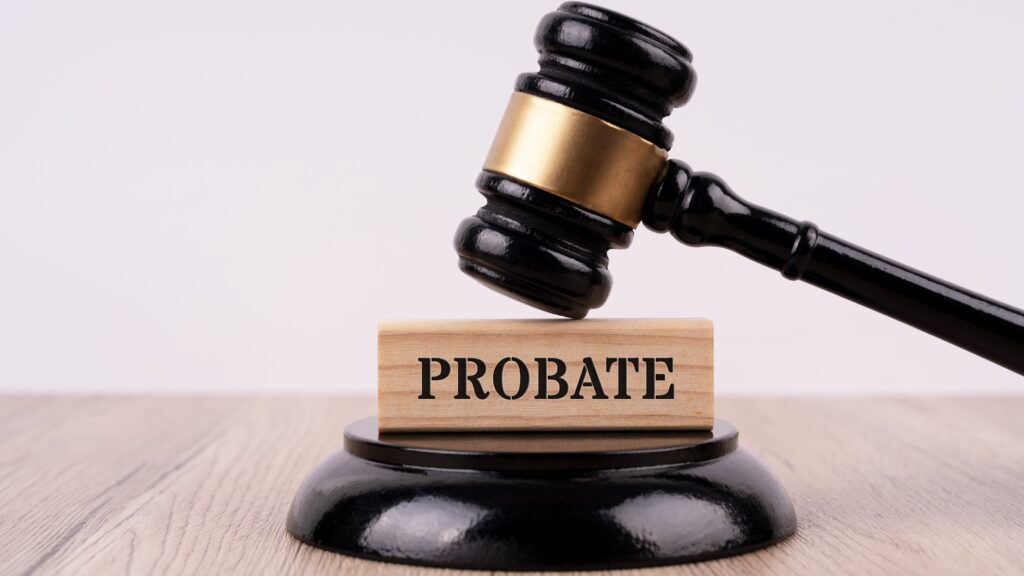When someone passes away in Texas, you might assume that once a will goes through probate, everything is set in stone. But many people facing complicated estate situations ask a critical question: can you contest a will after probate in Texas? The short answer is yes — but with limitations, legal hurdles, and strict procedures.
Understanding how Texas law handles will contests after probate is crucial if you suspect something went wrong during the distribution of an estate. In this comprehensive guide, we’ll break down everything you need to know about whether you can contest a will after probate in Texas, the deadlines involved, the legal process, and real-life situations where families fought back even after probate seemed finished.

What Does Probate Mean in Texas?
Before answering whether you can contest a will after probate in Texas, it’s important to understand what probate actually means. In Texas, probate is the legal process where the court validates a will and oversees the administration of the deceased person’s estate. Probate serves several purposes:
- Officially recognizing the will as valid.
- Appointing an executor or administrator.
- Settling debts and paying taxes.
- Distributing assets to beneficiaries.
Once probate is complete, it’s natural to think the estate is fully closed. But can you contest a will after probate in Texas? That depends on several key factors, which we’ll explore.
Real-Life Story: Karen Discovers New Evidence
Karen’s father passed away, and his will was admitted to probate. Several months later, Karen uncovered evidence that her father may have been under significant pressure from a caregiver who had suddenly appeared in the last year of his life. Despite theprobate process already concluding, Karen’s discovery made her wonder: can you contest a will after probate in Texas? As she learned, Texas law allows late contests under very specific circumstances.
When Can You Contest a Will After Probate in Texas?
While probate adds finality to many estate matters, Texas law does leave open a narrow window for contesting a will after probate. The key lies in Texas Estates Code Section 256.204. Here’s the breakdown:
- You generally have two years after the will has been admitted to probate to file a contest.
- This means that even if the estate is already distributed, you may still file a legal challenge during that two-year period.
- After the two-year window, contesting becomes far more difficult — though rare exceptions exist.
So, can you contest a will after probate in Texas? Yes — if you act within that statutory deadline or fall under one of the rare exceptions.
Grounds for Contesting a Will After Probate in Texas
Not every grievance will justify contesting a will. The court requires specific legal grounds for reopening probate matters. The most common legal grounds include:
Lack of Testamentary Capacity
If the person signing the will didn’t have the mental capacity to understand what they were doing, the will could be invalid. Indicators include:
- Dementia or cognitive decline.
- Severe illness impairing judgment.
- Undue medication effects.
Undue Influence
A person exerted pressure or manipulated the deceased into creating or modifying a will that benefited them unfairly.
Fraud or Forgery
The will was forged or signed under false pretenses. This can include outright forgery or misrepresentation of facts to the testator.

Revocation
The will was revoked before death, but a prior (now invalid) version was mistakenly probated.
If any of these apply, you may succeed if you contest a will after probate in Texas within the allowed period.
Real-Life Story: Michael’s Fight for the Truth
Michael’s mother signed a new will six months before her death, cutting out Michael entirely in favor of her home healthcare aide. After probate concluded, Michael discovered text messages showing the aide had threatened and manipulated his mother. Encouraged by his attorney, Michael asked again: can you contest a will after probate in Texas? Since he was still within the two-year window, the court reopened the case based on evidence of undue influence.
What Happens If You File a Will Contest After Probate in Texas?
When you file a petition to contest a will after probate in Texas, you’re essentially asking the court to invalidate the previously admitted will. This process isn’t simple. Here’s a brief outline:
- Filing the Contest: You must file a written petition in theprobate court that handled the original case.
- Serving Notice: All beneficiaries and interested parties must be formally notified.
- Gathering Evidence: This includes medical records,witness testimony, documents, and expert opinions.
- Court Hearings: A judge (sometimes a jury) will hear the evidence and decide whether the will remains valid or gets set aside.
The legal burden is on the person contesting to prove that the will is invalid based on one of the legal grounds allowed under Texas law.
Can You Contest a Will After Probate in Texas If You Just Disagree with Its Terms?
Simply being unhappy with the will’s terms isn’t enough. The court won’t reopen probate just because you feel left out or believe the will is unfair. Texas probate courts strictly enforce the principle that people have the right to distribute their estate however they choose — unless there’s solid legal evidence that something compromised their free will.
The Rare Exception: Fraud Discovered After Two Years
We’ve emphasized the general two-year limit, but there’s one key exception to be aware of if you’re asking, can you contest a will after probate in Texas?
Under Texas law, if fraud was committed in concealing the existence of a will contest or manipulating probate, the statute of limitations may be extended. This is extremely rare but offers hope in situations where evidence was actively hidden.
Real-Life Story: Susan’s Delayed Discovery
Susan’s aunt passed away, and a caregiver arranged probate without informing any relatives. Susan only learned of her aunt’s death two years later when investigating family history. After uncovering deliberate concealment of her aunt’s true estate plan, Susan asked: can you contest a will after probate in Texas even if it’s been more than two years? With strong evidence of fraud, the court allowed her to challenge the will despite the expired deadline.
Who Can Contest a Will After Probate in Texas?
To file a valid will contest after probate, you must have legal standing. In Texas, the following individuals may typically qualify:
- Heirs who would inherit under intestate succession if the will were invalidated.
- Beneficiaries named in earlier versions of the will.
- Creditors with valid estate claims.
- Other parties with a legally recognized financial interest.
Not everyone who dislikes the will’s outcome can file a challenge. You must demonstrate how you’re directly harmed by the existing will.
Legal Challenges of Contesting a Will After Probate in Texas
Even though you may technically file a contest after probate, several legal obstacles make success difficult:
- The will already carries the presumption of validity once admitted.
- Evidence may be lost or harder to obtain over time.
- Witnesses may be unavailable.
- Beneficiaries who already received property may resist efforts to reopen the estate.

Having a highly experienced probate attorney is crucial if you’re considering contesting a will after probate in Texas.
Real-Life Story: David’s Uphill Battle
David suspected that his father’s will, already probated a year earlier, was fraudulent. But key witnesses had moved out of state, and the lawyer who drafted the will had passed away. Though Texas law allowed his late challenge, assembling convincing evidence proved extremely difficult. David’s case underscores why prompt legal action is essential if you hope to contest a will after probate in Texas.
Can You Recover Assets If a Will Is Overturned After Probate?
If a court ultimately invalidates a will after probate, Texas law permits a process called “estate restitution.” This allows the estate to redistribute assets according to intestacy laws or an earlier valid will.
However, reversing distributions can be complex:
- Some assets may have been sold.
- Third-party buyers may have legal protections.
- Heirs who spent their inheritance may not have funds to repay.
This adds to the legal and emotional complexity of contesting a will after probate in Texas.
How Long Does a Will Contest After Probate Take in Texas?
There’s no simple answer. A will contest after probate can take:
- Several months for straightforward cases.
- One to two years for complex disputes.
- Even longer if appeals are filed.
Delays often stem from discovery battles, expert witness preparation, and scheduling court time. If you’re asking can you contest a will after probate in Texas?, be prepared for a lengthy and stressful legal fight.
Real-Life Story: Jenna’s Five-Year Probate Battle
Jenna contested her stepmother’s will after discovering extensive evidence of elder financial abuse. The case dragged on for five years due to numerous appeals and resistance from opposing heirs. Though ultimately successful, Jenna described the legal fight as emotionally and financially draining. Her story shows that contesting a will after probate in Texas isn’t for the faint of heart.
Can Mediation Help Resolve Will Contests After Probate?
Sometimes. Texas courts often encourage mediation before proceeding to trial. Mediation allows:
- Confidential settlement discussions.
- Creative solutions that courts cannot order.
- Faster resolutions with reduced costs.
For families seeking closure, mediation can help avoid the bitterness of drawn-out litigation while still addressing their legal concerns.
Why Legal Representation Matters When Contesting a Will After Probate in Texas
Navigating can you contest a will after probate in Texas? requires deep expertise in Texas probate law, procedural rules, evidence gathering, and strategic negotiation. Hiring a skilled probate litigation attorney gives you:
- Accurate advice about your legal standing.
- A realistic assessment of your case’s strength.
- Strategic guidance for gathering compelling evidence.
- Effective representation in court or settlement discussions.

Trying to contest a will alone — especially after probate has closed — is rarely successful.
Final Thoughts: Can You Contest a Will After Probate in Texas? Yes, But It’s Complicated
While Texas law allows people to contest a will after probate, doing so involves strict deadlines, legal complexity, and high burdens of proof. The question can you contest a will after probate in Texas? is best answered with: yes, but only if you move quickly, have solid legal grounds, and prepare for a challenging process.
If you suspect fraud, undue influence, or other misconduct occurred in your loved one’s estate, don’t wait. The earlier you consult a Texas probate attorney, the better chance you have of protecting your rightful inheritance and preserving important evidence before it’s too late.








